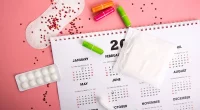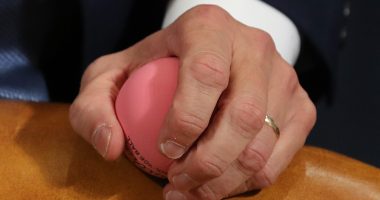Many people start their day with a glass of warm water, believing it aids digestion and detoxification. However, while this practice is often praised, it is essential to recognize that drinking warm water on an empty stomach can have significant side effects. This article will explore seven dangerous side effects of this seemingly harmless habit, backed by research and expert opinions.

#1. Risk of Internal Burns
One of the most immediate dangers of drinking warm water is the risk of internal burns. Consuming water that is too hot can scald the delicate tissues of the mouth, throat, and esophagus. Barbara Kovalenko, a nutrition consultant, warns that drinking excessively hot liquids can lead to laryngopharynx edema, which can block the airway and cause breathing difficulties. A notable case involved a 61-year-old man who suffered severe respiratory issues after drinking water estimated at 90°C (194°F).
#2. Dehydration Concerns
Drinking warm water may paradoxically lead to dehydration. When the body is exposed to heat, it tends to sweat more to regulate temperature, which can result in fluid loss. A study published in the International Journal of Clinical and Experimental Medicine found that drinking hot water increases sweating compared to cooler temperatures, potentially leading to dehydration if fluid intake isn’t adequately maintained. Dehydration can cause fatigue, headaches, and impaired organ function.
#3. Contaminant Exposure
Hot water from taps may contain higher levels of contaminants compared to cold water. As hot water dissolves substances more readily, it can leach metals from plumbing systems, such as lead and copper, into the water. A report by the World Health Organization (WHO) highlights that drinking hot water from old pipes can expose individuals to harmful contaminants, increasing the risk of gastrointestinal issues and long-term health problems.
#4. Nutrient Absorption Interference
Drinking warm water on an empty stomach can interfere with nutrient absorption. The heat can damage enzymes in the digestive tract that are crucial for breaking down food and absorbing nutrients. Research indicates that impaired digestion can lead to nutrient deficiencies, which can affect overall health and immune function. A balanced diet is essential for maintaining health, and any disruption in nutrient absorption can have lasting consequences.
#5. Increased Risk of Kidney Strain
The kidneys play a vital role in filtering waste and maintaining fluid balance in the body. Drinking excessive amounts of warm water can place undue stress on the kidneys, as they work harder to process the increased fluid intake. This can lead to kidney dysfunction over time, especially in individuals with pre-existing kidney conditions. A health report suggests that overworking the kidneys can lead to chronic kidney disease if not managed properly.
#6. Sleep Disruption
Consuming warm water, particularly before bedtime, can disrupt sleep patterns. The body’s need to urinate frequently can interrupt sleep, leading to insomnia and fatigue. A study published in the Journal of Sleep Research found that fluid intake before bed significantly affected sleep quality, with frequent awakenings linked to increased fluid consumption. Maintaining a healthy sleep schedule is crucial for overall well-being, and drinking warm water before sleep can hinder this.
#7. Potential for Bacterial Overgrowth
Drinking warm water can create an environment conducive to bacterial overgrowth in the gut. This is particularly concerning for individuals who may already have digestive issues. A condition known as small intestinal bacterial overgrowth (SIBO) can arise, leading to symptoms such as bloating, gas, and diarrhea. Research indicates that SIBO can result in malnutrition and other serious health complications if left untreated.
Conclusion
While drinking warm water on an empty stomach is a common practice believed to offer health benefits, it is essential to consider the potential dangers associated with it. From the risk of internal burns to the possibility of dehydration and nutrient absorption issues, the side effects can significantly impact health. If you choose to drink warm water, moderation is key, and it may be wise to consult a healthcare professional for personalized advice.
FAQs
Q. Is it safe to drink warm water on an empty stomach every day?
A. No, while warm water can have benefits, daily consumption on an empty stomach can lead to various health issues, including internal burns and dehydration.
Q. What are the benefits of drinking warm water?
A. Some benefits include improved digestion and temporary relief from congestion. However, these benefits may not outweigh the risks associated with drinking hot water.
Q. How long should I wait to eat after drinking warm water?
A. It is advisable to wait at least 30 minutes before eating to allow your body to absorb the water and prepare for digestion.
Q. Can drinking warm water cause weight gain?
A. While drinking warm water itself does not cause weight gain, it can disrupt sleep patterns and lead to hormonal imbalances, which may contribute to weight issues over time.
Q. What is the ideal temperature for drinking water?
A. The optimal drinking temperature for water is around 58°C (136°F). Water above this temperature can pose a risk of burns and other health issues.
Also Read | Does drinking too much water kill you? Reason and fact from recent case









